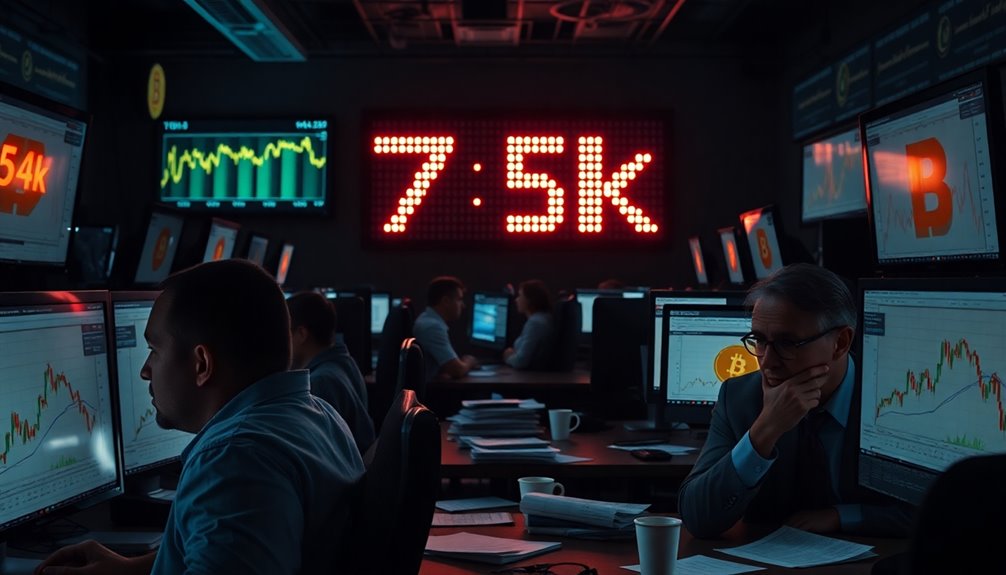As Bitcoin edges closer to a potential crash at the $75k mark, it's crucial to consider the risks involved. Volatility is part of the game, but recent regulatory pressures and economic shifts add layers of uncertainty. You might find yourself questioning how these factors could influence your investments. What strategies can help you navigate this turbulent landscape? Let's explore the insights from specialists and what they mean for your financial decisions.

As Bitcoin continues to dominate headlines, you should be aware of the looming risks that could trigger another significant crash. The cryptocurrency has a history of wild price swings, with notable declines in 2018 and 2022 serving as stark reminders of its volatility. You might feel excited about the potential gains, but remember that market sentiment can quickly shift from euphoria to panic, driving prices down dramatically.
Regulatory risks are another concern. Governments around the world are tightening their grip on cryptocurrencies, and any new regulations can impact Bitcoin's value. A sudden announcement of stricter regulations can trigger a sell-off, leading to sharp declines. Even with increasing institutional adoption, Bitcoin remains a speculative asset, making it prone to unpredictable market shifts. Additionally, monitoring social media for regulatory news can provide insights into potential market reactions.
As you consider investing, pay attention to global economic factors. Rising inflation can erode the purchasing power of fiat currencies, which may boost Bitcoin's appeal as a hedge. However, if interest rates climb due to tight monetary policies, the appetite for risky assets like Bitcoin could diminish. Notably, experts like Robert Kiyosaki predict a major stock market crash in 2025, which could further influence Bitcoin's market dynamics.
You should also keep an eye on global debt levels; high debt can lead to broader economic instability, which might affect Bitcoin's performance. Experts like Robert Kiyosaki predict an economic downturn in 2025, suggesting that Bitcoin could serve as a safe haven during tough times.
But, when economic conditions worsen, interest in alternative assets like Bitcoin often increases, so you need to tread carefully. The speculative nature of Bitcoin means that its price can fluctuate wildly based on market sentiment, making it crucial for you to stay informed.
Technical factors also play a role in Bitcoin's dynamics. Events like halving reduce the supply of new coins, potentially driving prices up if adoption remains strong. Yet, the increasing difficulty of mining can complicate supply issues, affecting price.
The capped supply of 21 million coins does enhance Bitcoin's perceived value, but you can't ignore the potential for liquidity risks and market manipulation. Lastly, public perception matters. Negative media coverage or public sentiment can erode investor confidence and lead to a downward spiral in prices.
If you're considering investing in Bitcoin, stay cautious and do your homework. Understanding these risks will help you navigate the unpredictable waters of cryptocurrency investment.









